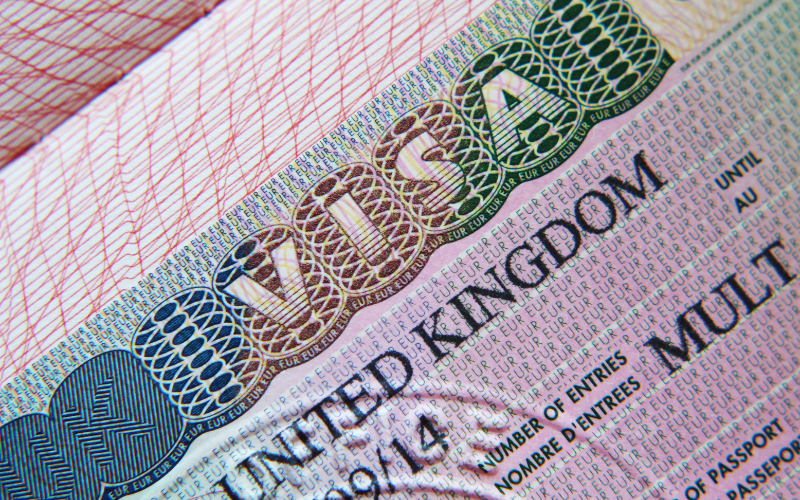UK visa sponsor phishing attacks impersonate the Home Office
by Aaron Flack on Sep 2, 2025

A coordinated phishing campaign is targeting organisations that hold a UK sponsor licence. Attackers are impersonating the Home Office and steering users to cloned Sponsorship Management System login pages to steal credentials at scale. Reporting by Computer Weekly and analysis from Mimecast confirm the campaign is active and well-crafted, with realistic branding and copy that mimics genuine government notices.
Mimecast’s Threat Research team published technical findings on August 12, 2025, detailing a campaign targeting UK sponsor licence holders across worker, temporary worker, student, and child routes. News outlets began covering the activity the same week, highlighting the elevated risk of fraud to both sponsoring organisations and visa applicants. Before this, the Home Office issued a sponsor alert on 10 July 2025 via the Sponsorship Management System message board and direct emails to Key Contacts and Authorising Officers.
The phishing emails closely mimic genuine Home Office notifications and often reference urgent compliance actions or account suspensions. Many are sent to generic inboxes scraped from public websites, rather than to named Key Personnel, which increases the chance that an untrained recipient will engage. Links route through a CAPTCHA gate and then to a cloned login that copies GOV.UK styling and assets. The form submission is altered so that entered credentials are posted to the attacker code, not to the authentic authentication endpoint. Mimecast lists standard subject lines such as “A new message has been posted to your Sponsorship Management System,” “New Message Notification,” and “UKVI Secure Notification.”
With a stolen login, criminals can monetise access in several ways. Mimecast documents the resale of sponsor accounts on criminal forums, the issuance of fraudulent Certificates of Sponsorship, and extortion of victim organisations. Multiple reports have noted a downstream fraud pattern in which fake job offers and sponsorship packages are sold to applicants using details from compromised sponsor accounts, resulting in reported losses of between fifteen and twenty thousand pounds. That combination of credential theft and immigration fraud creates risk on two fronts: operational exposure for licence holders and financial harm for applicants.
What legitimate looks like, according to the Home Office
The Home Office notice on 10 July sets out clear verification rules. Legitimate sponsor communications originate from official domains and are sent via the SMS message board or the Account Management Portal, and are addressed to named Key Personnel. Officials will not send a login link, will not provide a password and will not ask anyone to verify an SMS User ID or password. The notice also instructs sponsors to access the SMS through GOV.UK, to use long and strong passwords, to keep contact details up to date and to deactivate Level 1 and Level 2 users who leave or change roles.
Successful compromise grants an outsider the same operational powers as a legitimate Level 1 or Level 2 user. That can lead to fraudulent Certificates of Sponsorship, unauthorised changes to licence details, and data exposure that triggers regulatory and contractual issues. Public reporting indicates that fraud using compromised accounts has already been linked to high-value scams against applicants, which raises reputational stakes for sponsors whose names and licence numbers lend false legitimacy to the activity. From a governance perspective, executives should treat SMS access as a privileged function that is closely aligned with legal obligations and external audits.
What to review now
Executives can request three swift checks without operational delays. First, confirm that all staff understand how real messages arrive. That includes the rule that users must not follow login links in emails, and must instead navigate directly to the official GOV.UK entry point for the Sponsorship Management System. Second, review the set of Level 1 and Level 2 users, removing anyone who no longer needs access, and ensure that strong passwords are in place. Third, inspect recent activity for unexpected Certificate of Sponsorship actions and confirm that contact details are accurate so real alerts reach the right people. These steps align with the Home Office’s published guidance and reduce the blast radius if an email gets through.
The current campaign uses a consistent flow. The email utilises official language and branding; the link redirects to a CAPTCHA that filters out automated scanners, followed by a convincingly cloned page that captures credentials. Mimecast’s analysis reveals that the cloned page's hotlinks point to genuine assets, but it modifies the form action to an attacker-controlled script. The firm also lists multiple common subjects and several example phishing URLs that imitate government naming patterns to lower suspicion. These details serve as practical indicators for detection teams and provide a valuable reference for awareness briefings.
Coverage from Computer Weekly, DIGIT and Infosecurity Magazine places the focus on both the sponsor side and the applicant side of the risk. The articles emphasise that the campaign is active, that the mechanics are credible and that the consequences include account takeover, data theft and fraud against migrants. This breadth of reporting suggests the issue is not a one-off lure but a theme that defenders should expect to evolve as text, lookalike domains, and redirect chains change.
Two points matter for long-term resilience. First, the Sponsorship Management System is not just another web portal. It sits on top of an immigration workflow with legal and compliance duties that can affect licence status. That elevates the duty of care for user management and audit. Second, attackers have recognised that government brand impersonation lowers scepticism, and that CAPTCHA gates hide the final destination from simple scanners. The right response is not a single tool. It is an executive norm to verify all sponsor messaging, coupled with robust user governance and regular reviews of recent SMS actions. Mimecast’s indicators and the Home Office verification rules provide credible reference points for these behaviours.
Speak to an expert about securing your estate and protecting against Phishing
| Company | Title | Link |
|---|---|---|
| Computer Weekly | UK work visa sponsors are target of phishing campaign | https://www.computerweekly.com/news/366629176/UK-work-visa-sponsors-are-target-of-phishing-campaign |
| Digit News | New Phishing Campaign Targets UK Visa Sponsor Licence Holders | https://www.digit.fyi/new-phishing-campaign-targets-uk-visa-sponsor-licence-holders/ |
| Visaverge | Home Office Phishing Scam Targets UK Immigration Sponsors’ SMS Credentials | https://www.visaverge.com/news/home-office-phishing-scam-targets-uk-immigration-sponsors-sms-credentials/ |
| Infosecurity Magazine | Home Office Phishing Scam Targets UK Immigration Sponsors | https://www.infosecurity-magazine.com/news/home-office-phishing-uk/ |
You May Also Like
These Related Stories

Google's Salesforce breach exposed customer contact data
Google has confirmed that hackers stole customer information by breaching one of its corporate Salesforce databases. The company said the incident occurred in June and involved data tied to small and medium business prospects for Google Ads. The stol …

MoD insider breach: £850m fallout from one avoidable mistake
In February 2022, a Ministry of Defence (MoD) official leaked sensitive personal data of 19,000 applicants from the Afghan Relocation and Assistance Policy (ARAP). This breach, recently revealed by multiple news outlets following the lifting of a hig …

The Legal Aid Agency cyber attack: what went wrong, and what happens next
What happened In April 2025, the Legal Aid Agency (LAA), part of the Ministry of Justice, suffered a catastrophic cyber attack. The breach exposed deeply personal and sensitive information of individuals who applied for legal aid services — potential …
